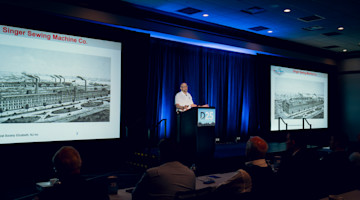The European metalworking and mechanical engineering industries are entering 2025 facing a dual reality: a cautious recovery in domestic markets alongside ongoing pressure from global economic challenges. While innovation and sustainability continue to shape long-term prospects, the current conditions reveal uneven growth, trade tensions, and persistent labor shortages.
According to the latest CECIMO (European Association of Manufacturing Technologies) outlook published by Evolis France, the European machine tool sector is expected to stabilize in 2025 with a slight decrease of 0.8% in consumption, following a sharp contraction of 13.7% in 2024. A modest industrial rebound of 1.1% is forecast for 2026, supported by normalizing inventories, declining energy prices, and renewed demand for industrial goods. However, for 2025, the outlook remains flat, with an overall industrial output decline of 0.1%.
Key competitive challenges continue to persist. European manufacturers are losing ground in sectors like machinery and automotive, where Chinese exports are becoming increasingly competitive. Additionally, Chinese domestic demand has weakened as the country shifts toward self-sufficiency, reducing European export opportunities.
Italy’s UCIMU, the Italian Machine Tool, Robot and Automation Manufacturers Association, reports an 8.5% increase quarter over quarter in the machine tool order index for the first quarter of 2025. This growth was driven entirely by domestic orders, which surged by 71.5% year over year, reaching an index of 94.5 (with the base year of 2021 set at 100). However, foreign orders fell sharply by 18.2%, causing the export index to drop to 74.4. This imbalance reflects the global slowdown in capital investment and intensifying international competition.
Swissmem, the umbrella organization representing Switzerland’s mechanical and electrical industries, has expressed strong concern over the new 31% tariffs imposed by the United States on Swiss technology exports. Since the United States accounts for nearly 15% of Swissmem members’ global sales, the impact of these tariffs is particularly severe for small and medium-sized enterprises (SMEs) that do not have production bases in the United States.
However, despite these challenges, some industry segments are positioned to benefit from geopolitical developments. Increased defense budgets in countries like Germany and France will boost demand for aerospace and metal products. These investments could provide a potential buffer for specific subsectors of the European metalworking industry, which are closely linked to defense and infrastructure development.
A few recently announced projects and investment news items are listed below.
Romania: German firm Ebm-papst is investing $34 million in a new production and R&D center in Oradea to manufacture components for the automotive, medical, and industrial sectors.
Turkey: Chery Automobile's partners will invest $1 billion in a car manufacturing plant with an annual capacity of 200,000 vehicles.
France: Alstom is investing over $170 million to expand its rail manufacturing capacity, including a new high-speed train line in Valenciennes.
France: MBDA will invest $2.73 billion from 2025 to 2029 to double its missile and defense system production, hire 2,600 new employees, and enhance partnerships across Europe.
Poland: Posco International is constructing a factory in Brzeg worth $48 million to produce electric motor cores.
Portugal: Chinese battery manufacturer CALB is launching a $2.3 billion factory to build EV battery cells and packs.
U.K.: Navantia UK will invest in Harland & Wolff facilities to strengthen defense, maritime, and clean energy capabilities.
Hungary: BMW is completing its new plant in Debrecen, which is dedicated to full-electric vehicle production. Trial units of the BMW iX3 are already underway.
For more information, please contact Achilles Arbex at AArbex@AMTonline.org, and to learn how to take advantage of these opportunities, click here.






